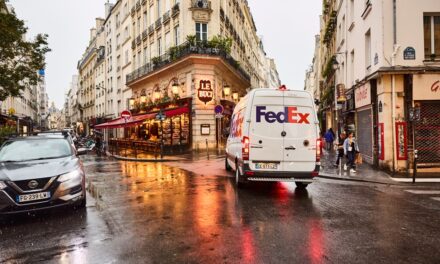
Electric vehicles meeting performance needs, says FedEx
FedEx Corporation said yesterday that electric vehicles it has been testing have been meeting the range requirements needed for daily use in its delivery network. The US delivery giant is in the process of nearly tripling the current number of electric vehicles it operates, expecting over the next few months to increase its all-electric fleet from 43 to around 130.
Mitch Jackson, the FedEx vice president for environmental affairs and sustainability, told a Senate Committee yesterday that the technology is beginning to prove itself, although it was still in the “very early stages”.
“What’s most encouraging for us is they are meeting the range requirements that we are looking for – around 100 miles range on the battery,” he said.
Delivery
Electric vehicles are seen as ideal for uses in the mail and express industry including last mile delivery, since their range on a single charge is around the usual range for a daily address-to-address delivery route, and batteries can then be charged up overnight, when electricity prices are lowest.
The difficulty in introducing electric vehicles remains mainly the upfront costs involved in investing in the vehicles, particularly the cost of the batteries, which Jackson said was the “critical issue with respect to mainstreaming electric vehicles”.
“For a FedEx truck what we are seeing is that (an electric version) is between two and three times the cost of a conventionally powered vehicle,” Jackson said, adding that “virtually all” of that extra cost was from the battery.
Once an electric vehicle is purchased, FedEx says it is seeing between 70% and 80% savings in actually operating and maintaining the vehicles compared to conventional trucks.
Practical
FedEx is rolling out electric vehicles across the US at the moment, including in California, Washington DC, New York, Texas and Chicago. More vehicles are also set to be deployed in Asia and Europe.
The company is working with manufacturers including AMP, Smith Electric and Freightliner Custom Chassis on developing the technology.
Yesterday on the same day Jackson testified before the committee, FedEx revealed it was considering increasing its global fuel efficiency targets for vehicles, since it has reached 80% of its target set for 2020, in half the time it had expected.
Jackson was testifying before the US Senate Committee on Environment and Public Works, detailing FedEx Corp’s “practical environmentalism” philosophy, which holds that environmental stewardship should be economically viable and motivational for employees, as well as responsible towards the community.












